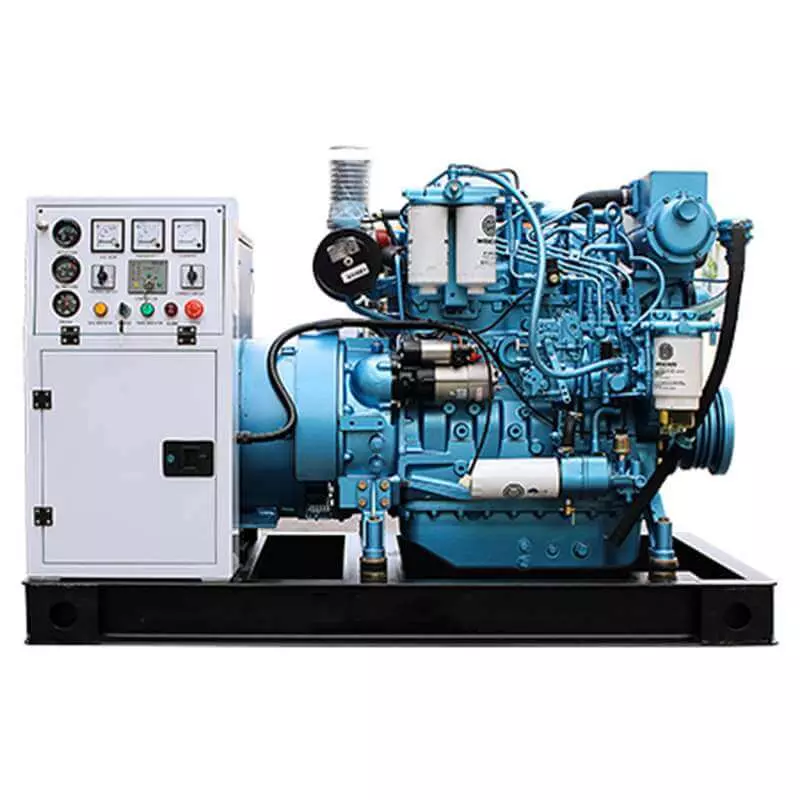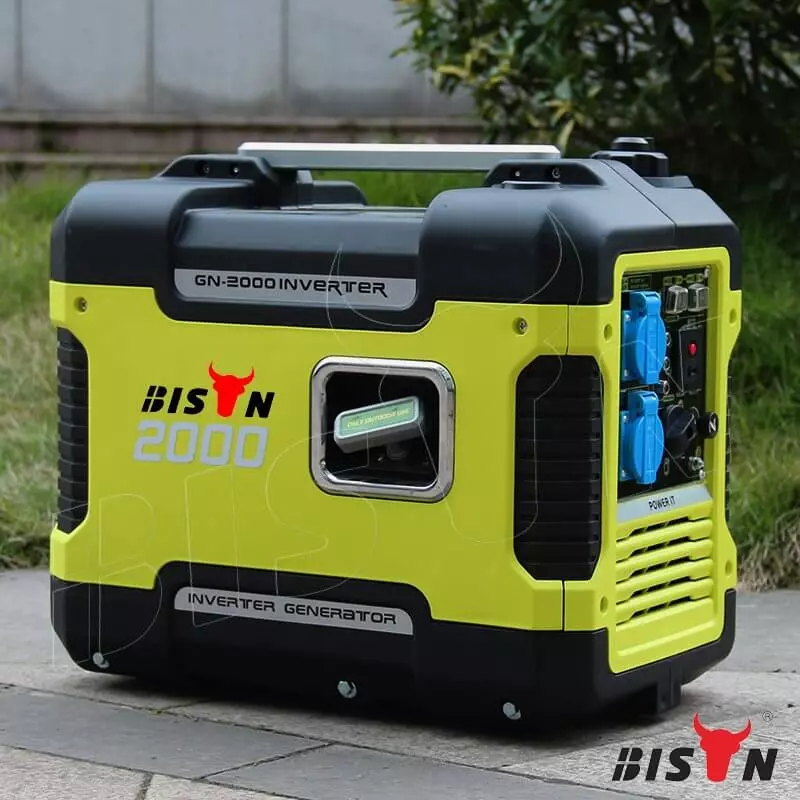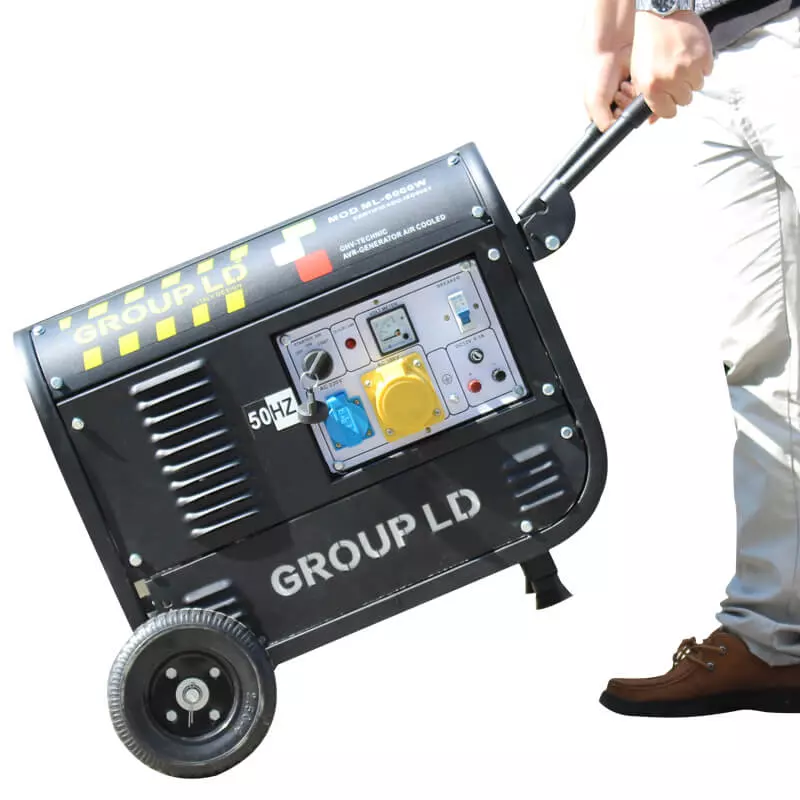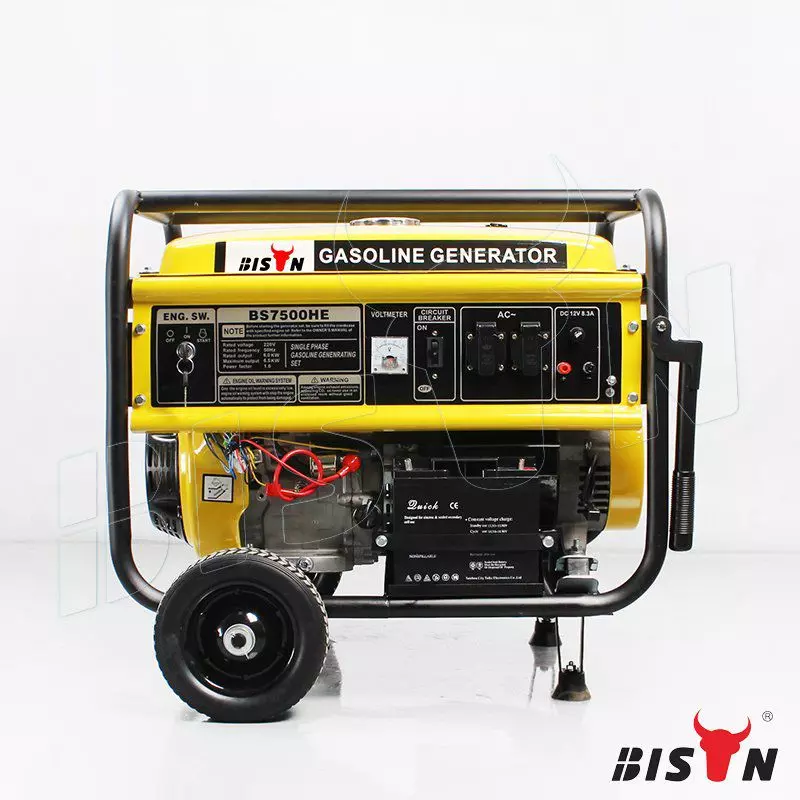corded vs. cordless power tools
2024-09-09
Table of content
Today, power tools have become an indispensable tool in countless industries—from construction and automotive to carpentry and home improvement. However, some power tools, such as drills, impact wrenches, and cordless reciprocating saws, are designed to operate by plugging a cord into an outlet (corded). In contrast, other power tools use batteries (cordless).
Each type has its pros, cons, and applications, and many people wonder which is right for their project. In this article, we’ll dive into the differences between corded and cordless power tools to help you make the best decision based on your project’s needs and priorities.
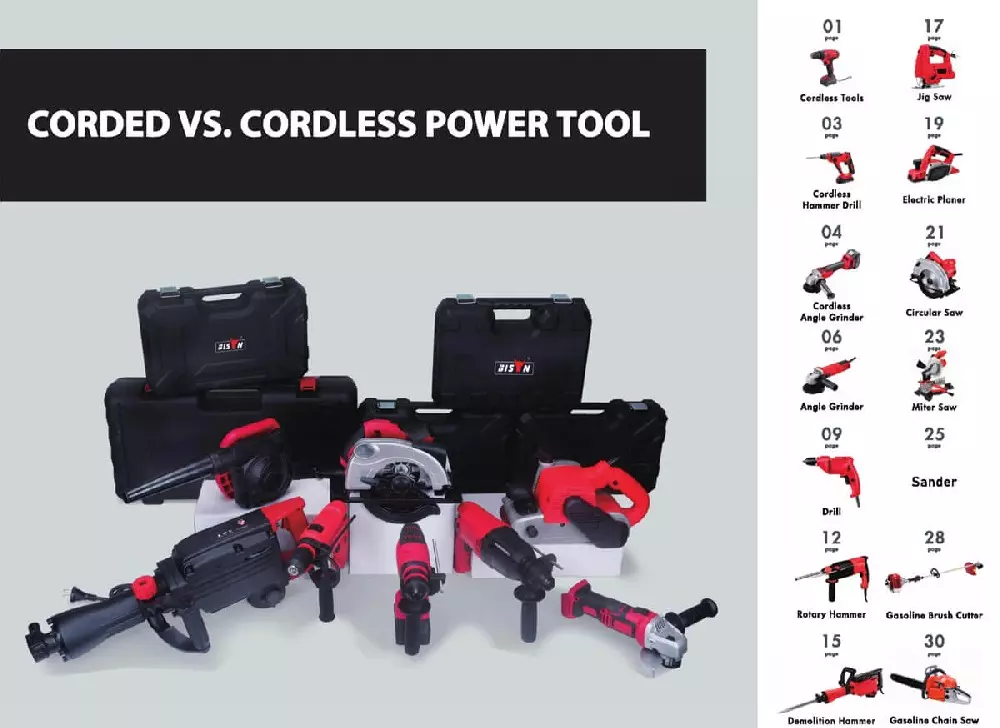
Corded power tools
Power tools that need to be connected to an electrical grid to work are called corded power tools. These tools are designed to be plugged into a standard wall outlet using an electrical cord that transmits power to the motor inside the tool, enabling it to perform tasks such as drilling, cutting, sanding, or grinding. Common corded power tools include drills, circular saws, reciprocating saws, angle grinders, and sanders.
Advantages of corded power tools:
Power: One of the most notable advantages of corded power tools is their steady and powerful power output. Whether you are drilling through thick concrete, cutting hardwood, or polishing surfaces, corded tools provide the steady power needed to get the job done without compromising performance.
Run time: The continuous power output of corded tools makes them ideal for heavy-duty applications. If there is an electrical outlet, these tools can provide unlimited run time. This feature is especially valuable for those who need to handle long-term projects or in industrial environments such as construction sites, workshops, etc.
Price: In general, corded power tools are particularly advantageous in terms of price. For those who are on a budget or looking for an affordable option, corded tools can provide excellent value for money. In addition, there is no need to purchase additional batteries and chargers.
Disadvantages of corded power tools:
Mobility: Corded tools are tethered to an electrical outlet, which limits their range of motion and can be inconvenient when working in large spaces or outdoor environments. People may use extension cords, but these are bulky and increase tripping hazards. In addition, working near water or in wet environments requires extra caution to prevent electric shock.
Cord management: Corded tools are limited by the length of their cords, which can get tangled, create tripping hazards, or get in the way of the work being done. In tight spaces or busy job sites, cord management becomes an additional task that requires attention, affecting overall workflow efficiency.
Limited access: Corded tools are not well suited for areas without readily available power. This can be a significant limitation when working in remote areas, unfinished buildings, or spaces where power outlets are scarce.
Examples of applications where corded tools are suitable.
Corded power tools shine in specific scenarios, especially for:
Heavy-duty projects: Tasks that require sustained high-power output, such as demolition work, heavy drilling, or long cuts, are ideal for corded tools. Contractors and construction professionals rely on strong performance and reliability in harsh environments.
Workshop: In a fixed workspace like a woodshop or garage, where power outlets are readily available, corded tools can be kept running. Whether cutting hardwood with a table saw, sanding surfaces with a belt sander, or engraving intricate patterns.
Budget users: For users who are just starting to build their tool collection or are on a tight budget, corded tools offer a more accessible entry point into quality power tools.
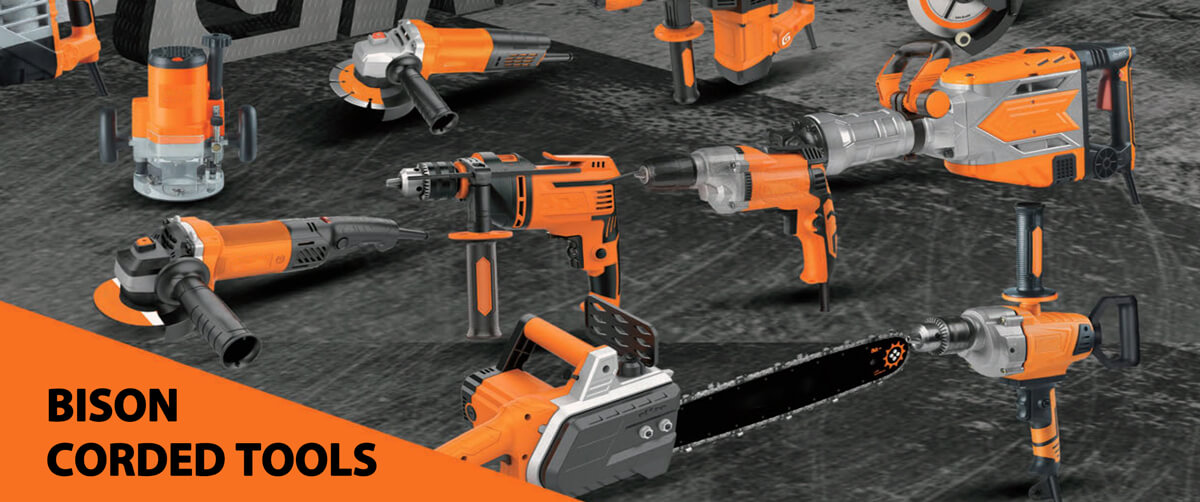
Cordless power tools
Cordless power tools are portable tools that use rechargeable batteries. They allow users to work without being directly connected to an electrical outlet and offer greater flexibility and mobility than corded power tools. They convert the electrical energy stored in the battery into mechanical action, enabling a range of tasks. Replaceable and rechargeable battery packs are an essential component of cordless tools. Common types of cordless power tools include drills, impact drivers, reciprocating saws, angle grinders, and even lawn care equipment such as lawn mowers and leaf blowers.
Advantages of Cordless power tools:
Portability: The most significant advantage of cordless tools is their unparalleled portability, which is suitable for outdoor or remote work environments. Without a power cord, users are free to move around the job site, work in remote areas, or tackle projects in areas with limited power. This improved maneuverability increases productivity and allows tasks to be completed more efficiently.
Ease of use: Cordless tools offer a simpler setup process and greater convenience. There is no need to search for an electrical outlet, untangle and organize cords, or worry about cord length limitations. This ease of use means faster start-up times for tasks and better overall efficiency, especially for quick jobs or when frequent tool changes are required.
Safety: The absence of a cord significantly reduces tripping hazards, and cordless tools provide a safer work environment. This safety benefit is critical in professional environments where reducing workplace accidents is a top priority, as well as in home environments where children or pets may be present.
Disadvantages of cordless power tools:
Power: While advances in battery technology have significantly improved the performance of cordless tools, some high-power demand applications are still unsuitable. However, for most everyday tasks, modern cordless tools provide ample power.
Runtime: Batteries limit the amount of time a cordless tool can be used. Once the battery is depleted, the user needs to interrupt work to charge or replace the battery. This limitation is particularly difficult for extended projects or continuous use.
Price: Cordless tools have a higher upfront cost than corded tools. In addition, investment in spare batteries and fast chargers may also be required.
Examples of applications where cordless tools are suitable
Cordless power tools perform well in a variety of situations, and are particularly well suited for:
Light to medium-duty projects: For most home repairs, DIY projects, and general construction tasks, such as installing fixtures, assembling furniture, or hanging shelves. The power and convenience provided by cordless tools are more than enough, and you can quickly move between multiple work locations in your home
Outdoor projects and remote areas: Cordless tools shine in outdoor environments where electrical outlets are sparse or non-existent. They are perfect for landscaping, deck construction, or repairing a vehicle in the driveway.
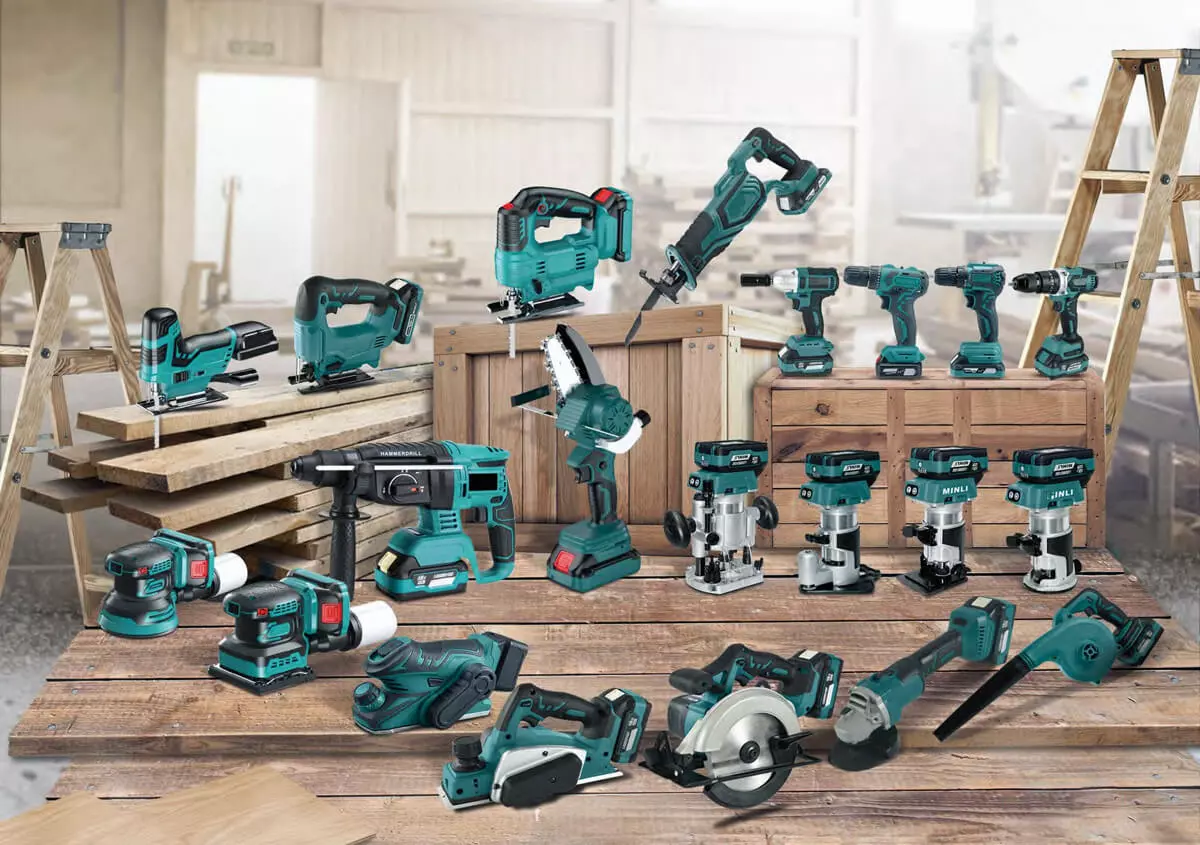
Factors to consider when choosing between corded and cordless power tools
When choosing between corded and cordless power tools, you must weigh several factors that can affect your overall efficiency, cost, and satisfaction with the tool. Here is a breakdown of the key aspects to consider:
Nature of project
The type of project you are working on is an important factor. The right power tool ensures task efficiency and quality. Corded tools are suitable for jobs that require continuous power or involve heavy-duty applications, such as drilling through thick materials or cutting dense wood. On the other hand, cordless tools may be more practical for projects that require mobility and flexibility, such as installations in remote areas or exterior renovations.
Power requirements
Consider the power requirements of the project. Corded tools are suitable for applications that require high torque or continuous operation because they provide steady, reliable power. In contrast, cordless tools may be suitable for light tasks or intermittent use because they may struggle with prolonged or more intensive applications due to battery limitations.
Weight
Corded tools are lighter because they do not include a battery. However, weight can vary depending on the type and size of the tool. Lighter weight is beneficial for prolonged use and reduces user fatigue. Choose tools with features such as comfortable grips, balanced weight distribution, and anti-vibration handles to reduce stress and increase user comfort during long tasks.
Durability
Corded tools are known for their ruggedness and long life because they face fewer power-related issues. The life of a cordless tool may be affected by the condition of the battery and the number of times it has been charged. Choose high-quality batteries whenever possible.
Environmental impact
Cordless tools are prone to environmental issues related to battery manufacturing, disposal, and recycling. Corded tools consume continuous power, which is lower than the environmental cost of producing and disposing of batteries.
Workspace constraints
The layout and accessibility of the workplace may also determine your choice. The mobility of cordless tools significantly improves workflow and convenience, especially when on ladders, in tight spaces, or in outdoor locations without available outlets. However, corded tools can be used in a stable workshop environment without the worry of moving.
Budget considerations
Finally, consider your budget. You need to weigh upfront cost against long-term value. Cordless tools may be more expensive initially due to the cost of batteries and chargers. Over time, replacing batteries can add costs. While corded tools may cost less, they may require extension cords or other accessories, depending on the workspace. In addition to the initial purchase, maintenance, battery replacement (cordless), and energy consumption (cordless) should also be considered.
Maintenance
Both tools require regular maintenance, including cleaning, checking for wear, and ensuring safety features are working properly. Cordless tools also require battery maintenance, such as proper charging and storage.
Safety precautions
When using corded tools, manage cords carefully to avoid tripping and entanglement. Use cord holders or cable organizers to keep cords tidy. Avoid running cords in hallways or placing them in areas where there is a risk of damage or moisture.
For cordless tools, prioritize battery safety and only use batteries and chargers recommended by the manufacturer. Avoid overcharging batteries, as this can cause overheating and shorten battery life. Batteries should not be exposed to high or low temperatures or direct sunlight to extend their life.
corded vs. cordless power tools
| Factor | Corded power tools | Cordless Power Tools |
|---|---|---|
| Power source | Continuous electricity from outlet | Rechargeable batteries |
| Power Output | Consistent, high power for demanding tasks | May have reduced power, especially for heavy-duty applications |
| Portability | Limited by cord length and outlet availability | Highly portable, can be used anywhere |
| Run Time | Unlimited if power is available | Limited by battery life, requires recharging or battery swaps |
| Initial Cost | Generally lower upfront cost | Higher initial cost, including batteries and chargers |
| Long-term Cost | May have higher electricity costs over time | Battery replacements needed eventually, but potentially lower energy costs |
| Ease of Use | Requires managing cords, finding outlets | No cords to manage, quicker setup |
| Safety | Potential tripping hazard from cords | Reduced tripping risk, safer in wet conditions |
| Weight | Often lighter without battery weight | Can be heavier due to battery |
| Versatility | Best for stationary, intensive work | Ideal for mobile work and quick tasks |
| Maintenance | Minimal maintenance, mainly cord care | Regular battery care and replacement needed |
| environmental impact | No battery disposal issues, but constant energy use | Battery recycling needed, but can use renewable energy sources |
| Noise Level | Generally louder | Often quieter operation |
| Best For | Heavy-duty, prolonged use in fixed locations | Light to medium tasks, outdoor work, multiple locations |
Conclusion
Choosing between corded and cordless power tools ultimately depends on your specific business needs, work environment, and project requirements. Corded tools typically offer unmatched power and reliability for heavy-duty tasks and continuous use, while cordless tools offer unmatched mobility, allowing you to work virtually anywhere without the constraints of an electrical outlet. Evaluating factors such as power and torque, portability, run time, ergonomics, cost, safety, and environmental impact will guide you in making an informed decision to meet your operational requirements, ensuring you optimize efficiency and productivity.
If you are looking for a reliable and high-quality supplier to expand your list of power tools, work with BISON. We specialize in providing a comprehensive range of power tools, ensuring you have access to advanced corded and cordless solutions to meet different market needs.
Our extensive business range includes:
Heavy-duty corded power tools: superior performance for industrial applications and demanding tasks.
Innovative cordless power tools: innovative battery technology, brushless motors for maximum portability and convenience.
Contact us today.

